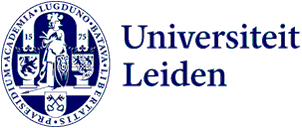
Memorandum of Understanding (MoU) signed between ISGA and Fukushima University
Last January Jake Wright and Andrea Bartolucci of the Institute of Security and Global Affairs (ISGA) traveled to Japan and visited some Japanese Institutes that are involved in disaster-related studies. The visit (the first of a series) was carried out within the ERASMUS+ International Credit Mobility (E+ ICM) that promotes the exchange of students, academics, and non-academic staff with partner countries of the ERASMUS+ programme.
The main goal of these visits is to strengthen the relationship with and increase the participation of experts from Japanese Institutes like the Institute of Environmental Radioactivity (IER) and the International Research Institute of Disaster Science (IRIDeS),Tohoku University, Sendai, in the course ‘Case Study Fukushima’, within the BSc Security Studies.
The final aim is to create an international course that is well-recognized within the academic world and that can be used as example of international collaboration. Furthermore, such collaboration, that is an essential aspect of scientific development, can help to enlarge the international network of the Institute and facilitate the creation of new collaboration projects.
Memorandum of understanding: Cooperate in a spirit of mutual understanding and goodwill
The partner research institute was the Institute of Environmental Radioactivity (IER) of Fukushima University, that was established in July 2013 to tackle challenges associated with environmental radioactivity after the Fukushima Daiichi Nuclear Plant accident in Japan.
Alongside the mobility agreement within the E+ programme, we signed an Memorandum of Understanding (MoU) with the Institute and agreed to cooperate in a spirit of mutual understanding and goodwill and to strengthen their ties of friendship.
Cooperative activities and improve learning objectives
The form of cooperative activities under this Memorandum consists of exchange visits of researchers, students, exchanges of scientific information and data including scientific literatures, joint-research projects between scientists of both institutions (engaged in research disciplines of mutual interests), and other forms of cooperative activities as are mutually agreed.
Such collaboration will be used to host Japanese experts in the course, organise meetings to improve the learning objectives of the course in the upcoming years, work with international experts in safety and environmental sciences to implement more relevant concepts and methods into the course, and create the opportunity to brainstorm collaborative research that is novel, relevant for ISGA’s research and international strategy.
The outgoing staff mobilities will be used to organise working meetings to better design the course in the upcoming years, for example visiting Fukushima and other areas affected by the disaster. This will allow to collect information, experiences, and material, which is useful to improve the quality of the course,
Memorandum has impact on the quality of the Case Study Fukushima course
This Memorandum will have a direct impact on the quality of the Case Study Fukushima course. The nature of this partnership will create opportunities for students to learn and to create a multi-disciplinary and multi-cultural environment that will increase international collaboration, understanding of other culture, and empathy. Lastly, this collaboration will create the basis to the application of future mobility programmes that will allow students of our university to spend a study period abroad in Japan.
-
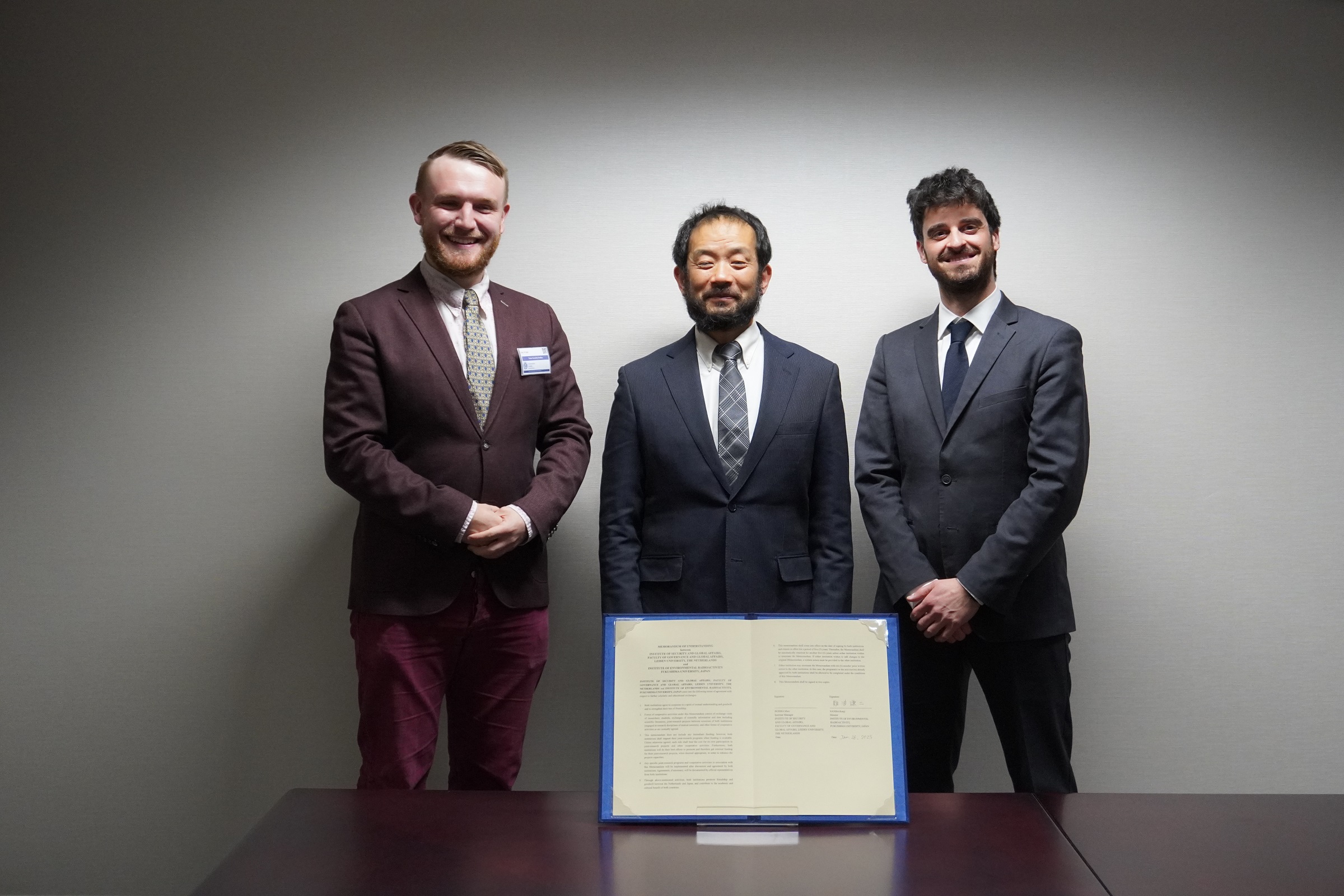
Jake Wright, Prof. Nanba Kenji and Dr. Andrea Bartolucci -
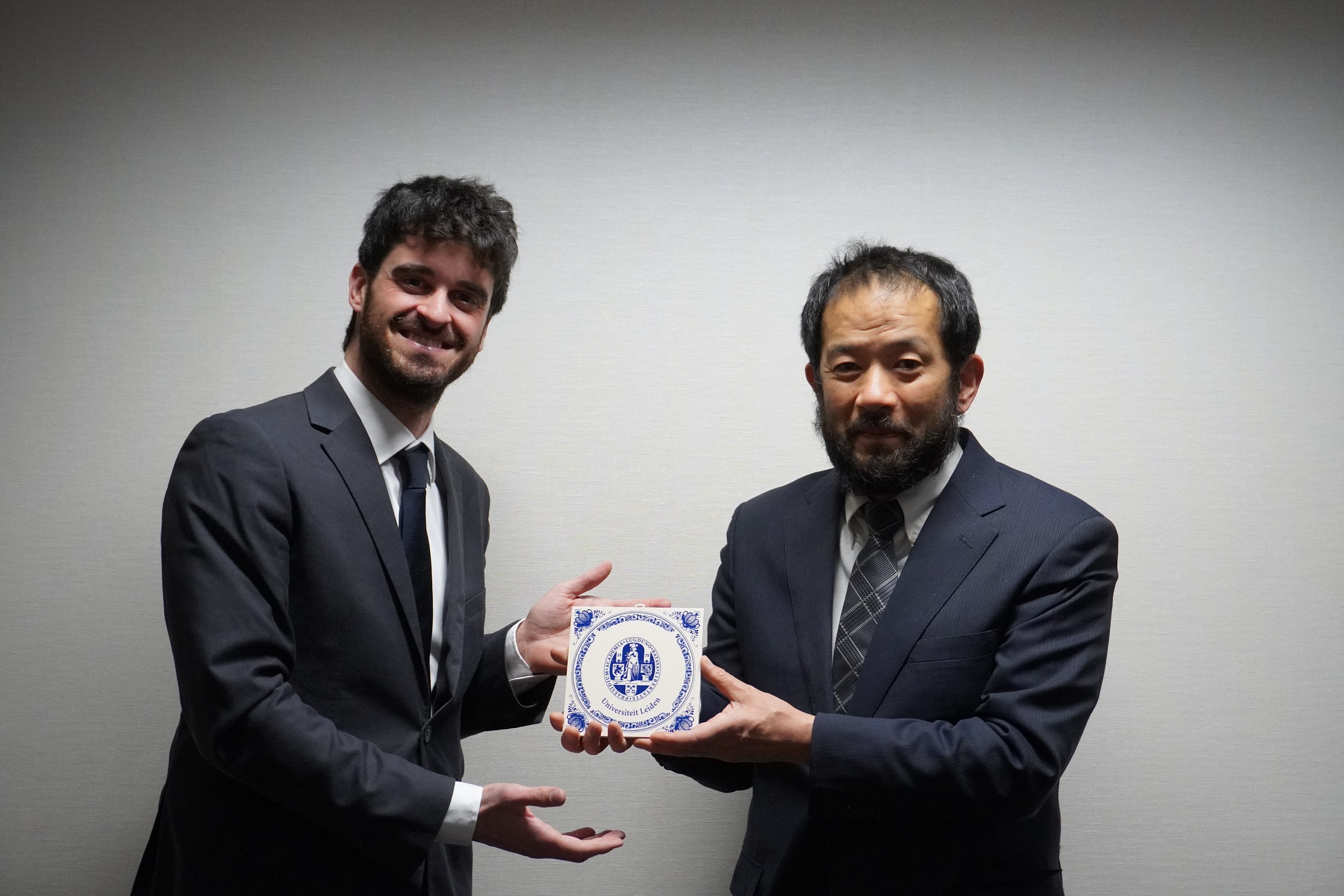
Dr. Andrea Bartolucci gave Prof. Nanba Kenji a Delft Blue tile of Leiden University -
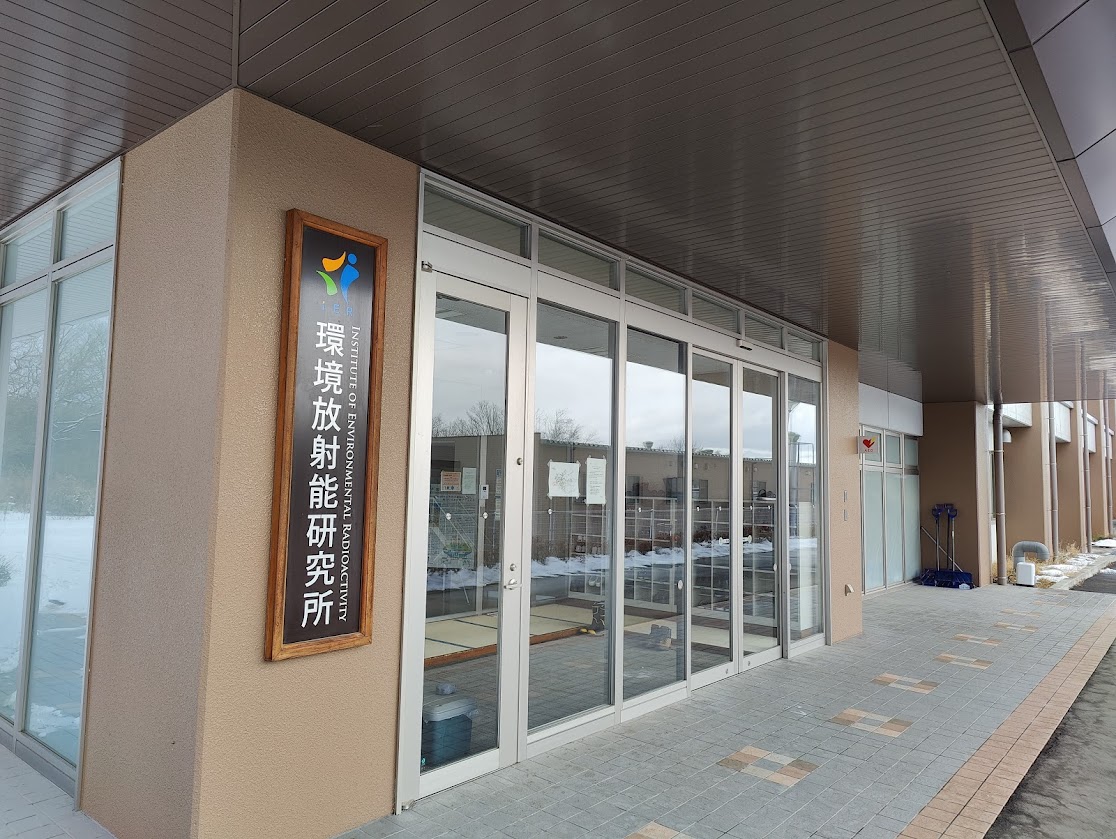
Entrance of the Institute of Environmental Radioactivity (IER) -

Ukedo school: flooded by the tsunami, now a memorial -

Jake Wright and Andrea Bartolucci are interviewing a man, who left his house due to the evacuation order -
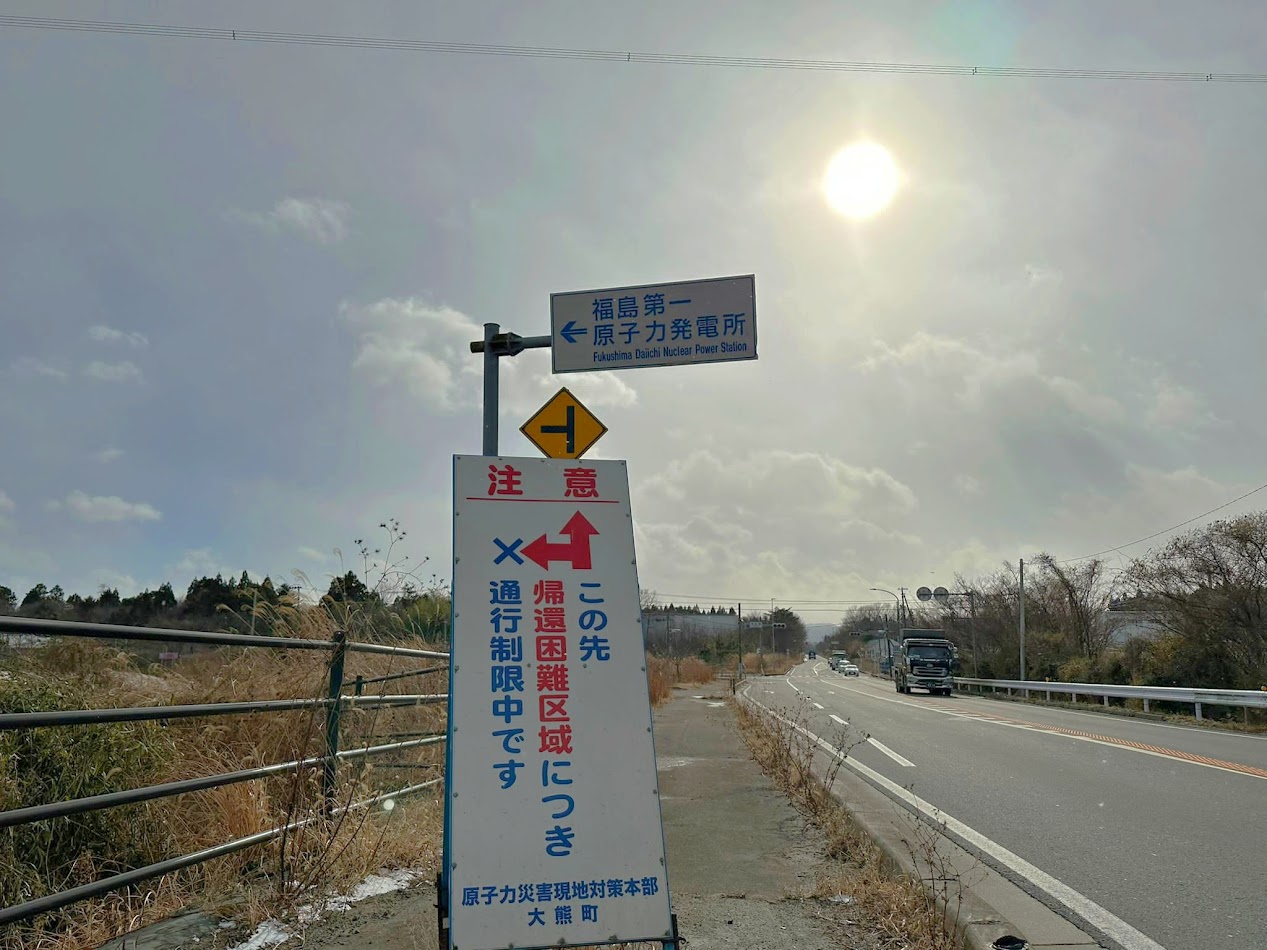
Gate of the Fukushima Daichi Nuclear Power Plant -
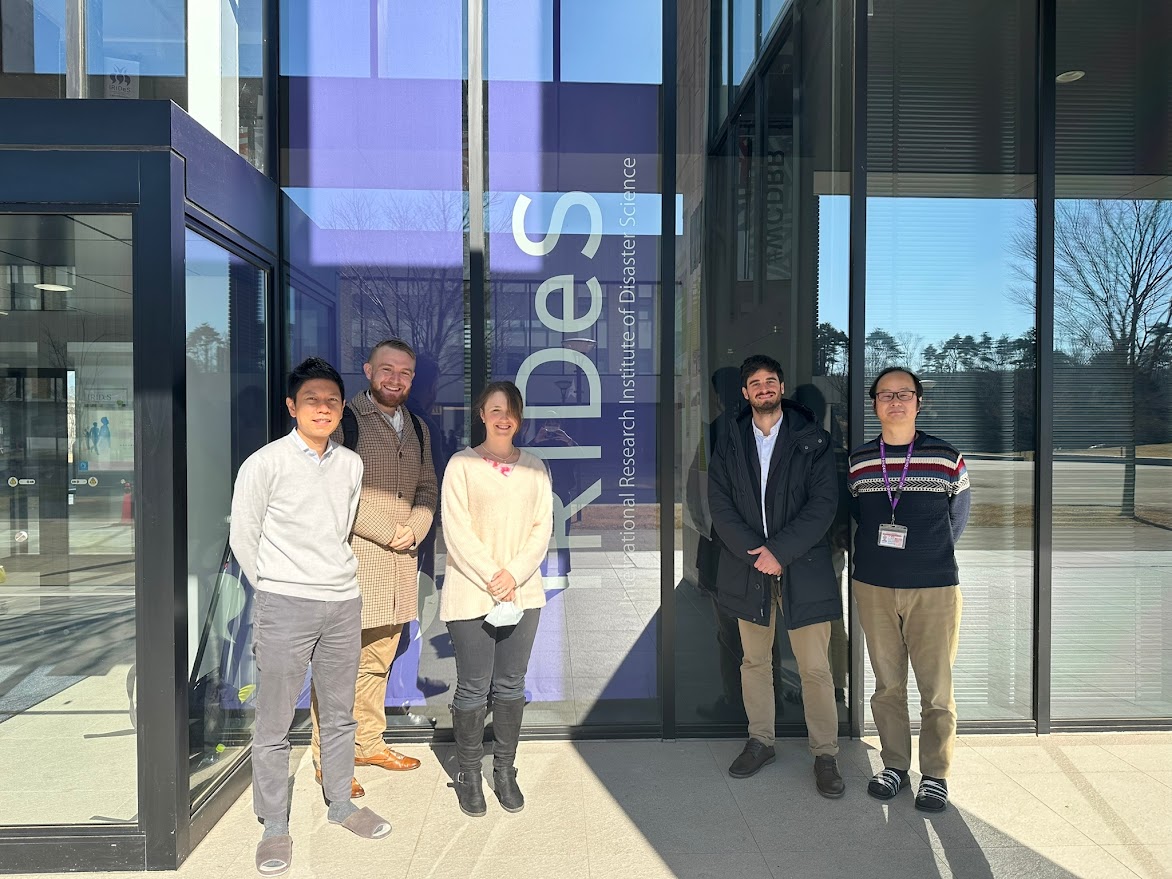
Visiting the IRIDeS in Sendai at Tohoku University, another institute that is participating in the case study Fukushima course -
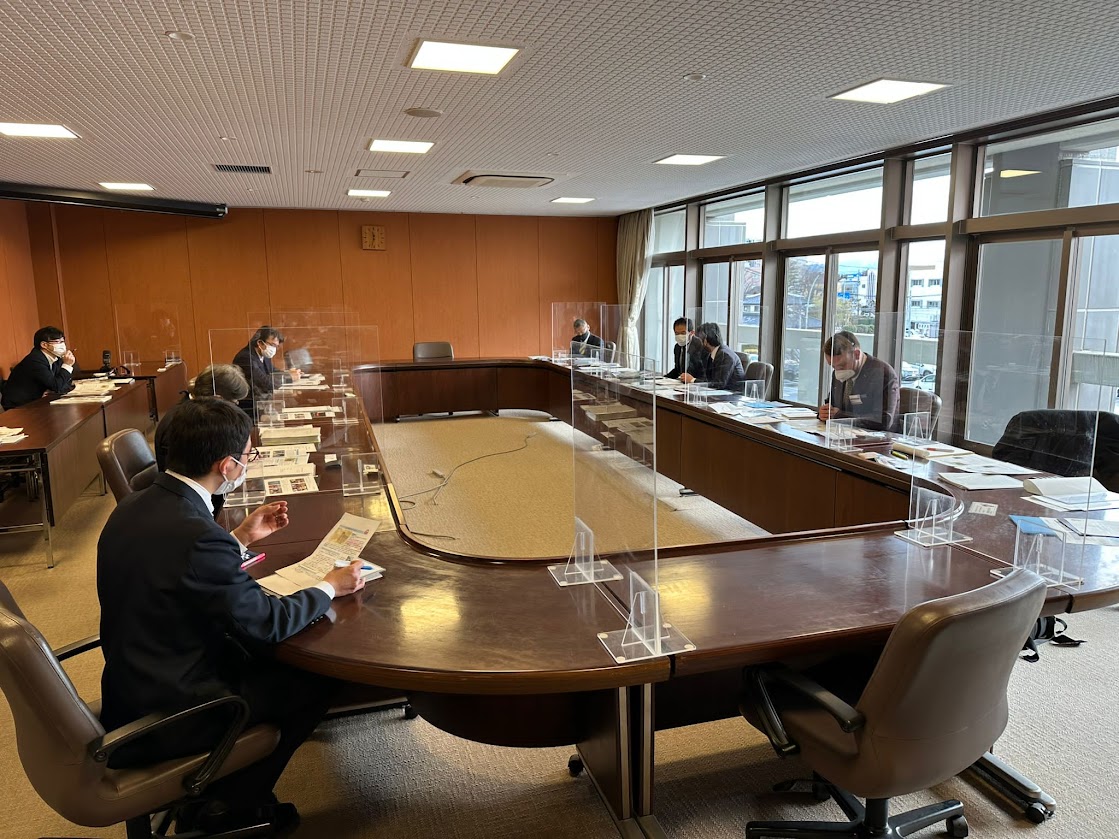
Meeting with the mayor of Koriyama city -
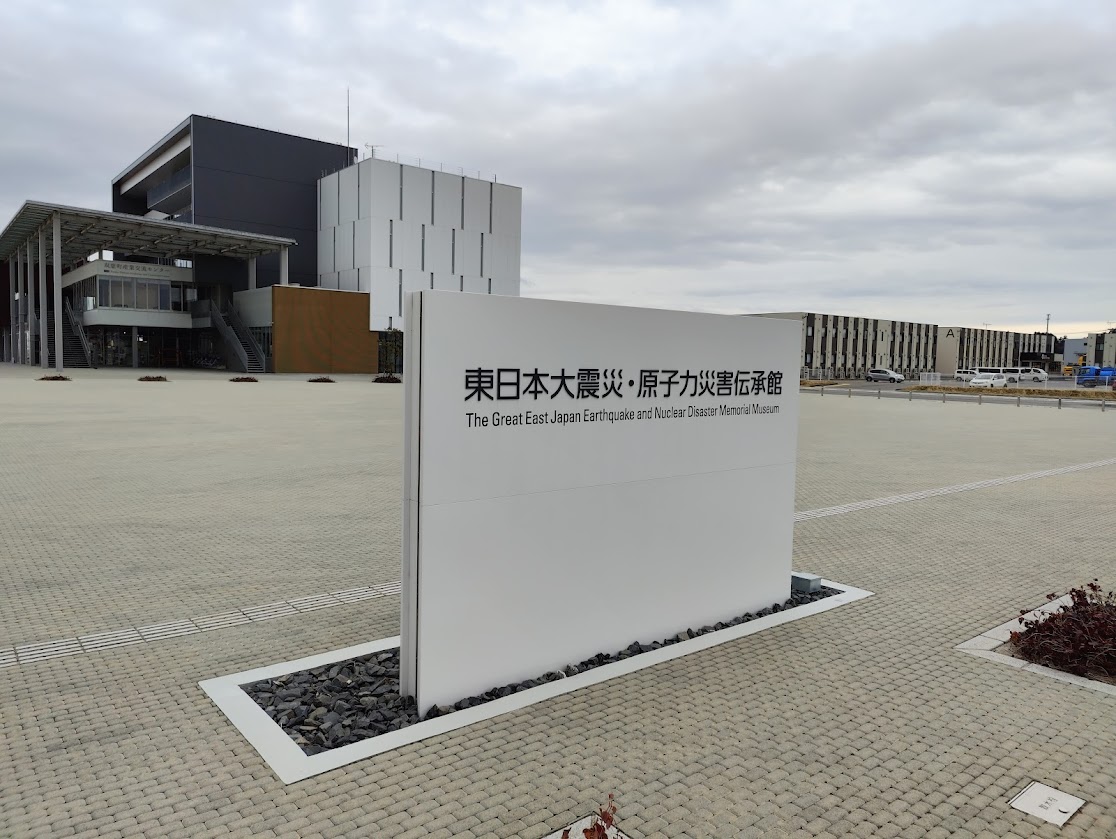
Great East Japan Earthquake and Nuclear Disaster Memorial
